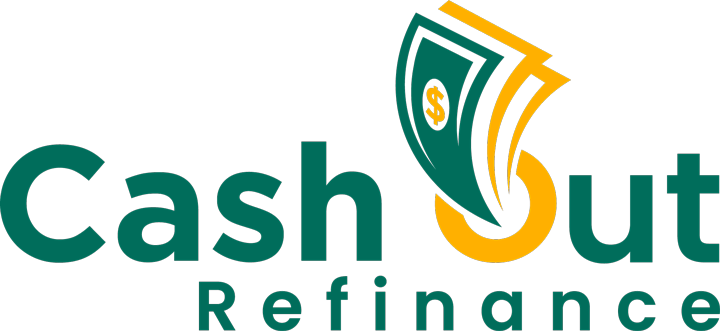Credit Score for Cash-Out Refinance: Everything You Need to Know
A cash-out refinance is a great way to tap into your home’s equity, but your credit score plays a crucial role in your eligibility, loan terms, and interest rate. Understanding the minimum credit score requirements and how to improve your credit before applying can help you secure the best refinance deal possible.
What is a Cash-Out Refinance?
A cash-out refinance replaces your existing mortgage with a new, larger loan. The difference between your new loan amount and your current balance is paid to you in cash, which you can use for home improvements, debt consolidation, investments, or other financial goals.
Why Your Credit Score Matters for a Cash-Out Refinance
Lenders use your credit score to determine your financial reliability. A higher credit score can help you:
- Qualify for a cash-out refinance more easily
- Secure a lower interest rate, saving you money over time
- Access higher loan amounts
- Reduce overall loan costs
Minimum Credit Score Requirements for Cash-Out Refinance
Different loan programs have varying credit score requirements:
- Conventional Loans: Minimum credit score of 620, but higher scores (700+) receive better rates.
- FHA Cash-Out Refinance: Minimum credit score of 580, though some lenders may require 600+.
- VA Cash-Out Refinance: No official minimum, but most lenders require at least 620.
- Jumbo Loans: Minimum credit score of 700-720 due to the larger loan amounts and increased risk.
How Credit Scores Impact Interest Rates on Cash-Out Refinancing
Your credit score directly affects the interest rate you receive. Here’s how:
- Excellent Credit (760+): Qualifies for the lowest interest rates available.
- Good Credit (700-759): Still eligible for competitive rates but slightly higher than top-tier borrowers.
- Fair Credit (620-699): Qualifies for refinancing but may face higher interest rates and stricter terms.
- Poor Credit (Below 620): Limited options, likely requiring an FHA or VA refinance if eligible.
How to Improve Your Credit Score Before Applying for a Cash-Out Refinance
If your credit score is below the ideal range, taking the following steps can improve your chances of approval and better terms:
1. Pay Down Credit Card Balances
- Reduce your credit utilization ratio (credit balance vs. credit limit) to below 30% for the best impact.
- Pay off high-interest debt to improve your debt-to-income ratio (DTI).
2. Make All Payments On Time
- Lenders review payment history closely. Even one missed payment can negatively impact your credit score.
- Set up automatic payments to avoid late fees and potential credit damage.
3. Check Your Credit Report for Errors
- Obtain a free copy of your credit report from AnnualCreditReport.com.
- Dispute any errors, such as incorrect late payments or accounts that don’t belong to you.
4. Avoid Opening New Credit Accounts
- Each credit inquiry can temporarily lower your credit score.
- Wait until after refinancing to apply for new loans or credit cards.
5. Maintain a Healthy Mix of Credit
- Having a combination of installment loans (mortgages, auto loans) and revolving credit (credit cards) shows financial responsibility.
- Avoid maxing out any single credit line.
How Lenders Evaluate Your Credit Score for a Cash-Out Refinance
Lenders consider more than just your raw credit score. Other key factors include:
- Loan-to-Value Ratio (LTV): Most lenders allow cash-out refinancing up to 80% of your home’s value.
- Debt-to-Income Ratio (DTI): Ideally, your monthly debts should not exceed 43% of your gross monthly income.
- Stable Income & Employment: A steady job history of at least two years strengthens your application.
- Mortgage Payment History: A history of on-time mortgage payments improves your chances of approval.
Pros and Cons of a Cash-Out Refinance Based on Credit Score
Pros:
✅ Lower interest rates compared to personal loans or credit cards. ✅ Access to large amounts of cash for financial needs. ✅ Potential tax benefits (consult a tax advisor). ✅ Opportunity to improve credit score by consolidating debt.
Cons:
❌ Higher credit scores required for the best loan terms. ❌ Closing costs typically range from 2% to 6% of the loan amount. ❌ Increased mortgage balance, potentially extending repayment time. ❌ Risk of foreclosure if new payments become unaffordable.
Alternatives to Cash-Out Refinancing for Low Credit Score Borrowers
If your credit score is too low to qualify for a favorable cash-out refinance, consider these alternatives:
- Home Equity Line of Credit (HELOC): Works like a credit card using home equity but with variable interest rates.
- Home Equity Loan: A second mortgage that provides a lump sum at a fixed interest rate.
- Personal Loan: Higher interest rates but does not use home equity.
- FHA Streamline Refinance: If you already have an FHA loan, this option allows refinancing with fewer credit restrictions.
Final Thoughts
Your credit score is a key factor in securing the best cash-out refinance terms. By understanding lender requirements and taking steps to improve your score, you can increase your chances of approval and reduce your borrowing costs. Before refinancing, compare lenders, assess your financial goals, and ensure you’re making the best decision for your long-term financial health.
If you’re considering a cash-out refinance, start by checking your credit score and improving it where needed. Then, explore lender options to secure the best refinance terms for your financial situation.


